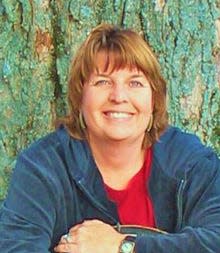A Different Drum: Coming to grips with ‘midlife orphan’ status
I just lost my mother, who died at the age of 89. Although I’ve been on my own for 36 years, during the last dozen or so of which she slowly succumbed to dementia, and I know she’s no longer suffering, is in a better place, etc., this is still an emotional blow – as those of you already there already know.
At age 59, I have become a “midlife orphan” as described by Jane Brooks in her 1999 book of the same name. Technically, I’m not as alone as, say, Little Orphan Annie, what with my sibling group intact, some remaining aunts and uncles, and two adult kids of my own. But my mother’s death has ushered in some new and unexpectedly strong feelings of loss and aloneness — even though I knew it was coming.

My mother was fortunate to have had her mother in her life for 73 years, and my mother’s younger siblings had that same mother in their lives for 63 and 62 years, respectively. On the other side of the equation, my grandmother told me the year before she died that it was hard for her to believe she had lived long enough to see all three of her children retire from their careers. That’s certainly more the exception than the rule.
It’s hard for many of us to fathom, including me, who lost my father when I was 27, and my children, who lost their father when they were only 15 and 16. Aside from the disruption of psychological, physical and financial security, along with the emotional bonds and loving vibes typically associated with having an intact family structure, a large part of one’s unofficial information- and history-keeping is pruned from the vine with the death of a parent.
I can no longer pick up the phone and ask my mother questions about things as germane as the best approach to making a particular cake frosting, or something as trivial as what year our family vacationed where, or an issue as important as the history of my childhood illnesses or whether certain conditions run in the family. Her encyclopedic knowledge of such things went by the wayside mostly with her dementia and permanently with her death. Being eased into midlife-orphan status doesn’t make it stink any less.
Like Christmas tree lights, family connections don’t function the same after you lose one of the bulbs. Writing at restless.uk.com, Dec. 16, 2021, Selene Nelson observes, “... parents are often the glue that holds a family together. Even when parents are old or ill, they’re what bring siblings together – and when they’re gone, it can seem as though there’s no real reason to gather anymore. Losing both parents can also mean a loss of family traditions and structure. The old dynamics have disappeared and it can be easy for families to begin to drift apart, which is another significant loss in itself.”
First with my grandmother and then with my mother removed from the nucleus of our family, we have gathered less and gotten along worse. It makes me wonder how many other people are experiencing the same dynamics, which I see frequently at the funeral home where I work.
Jane Brooks’ previously-alluded-to, thought-provoking book, "Midlife Orphan: Facing Life’s Changes Now That Your Parents Are Gone," reported that each year an astounding 5 percent of the population loses a parent. That translates to one in 20 people you meet is grieving the loss of a foundational someone in his/her life. Although I haven’t researched what the percentage is for 2023, I am guessing it’s likely higher due to the pandemic and its fallout.
Brooks’ book contained more anecdotal information and suggestions for coping with parent loss, especially the second parent, than it did research. She cited an eye-opening statistic from 1999: by the time we reach age 62, 75% of us will have lost both parents. That sobering information spurred Brooks’ interest in communicating how others wore and bore the “Midlife Orphan” label she made so identifiable. Thank you, Jane.
The influence of my familial changes will undoubtedly show up in my writing, but rest assured, eventually, “the sun’ll come out tomorrow” again for all the midlife orphans.
— Kristy Smith’s Different Drum humor columns are archived at her blog: diffdrum.wordpress.com
This article originally appeared on Sturgis Journal: A Different Drum: Coming to grips with ‘midlife orphan’ status
